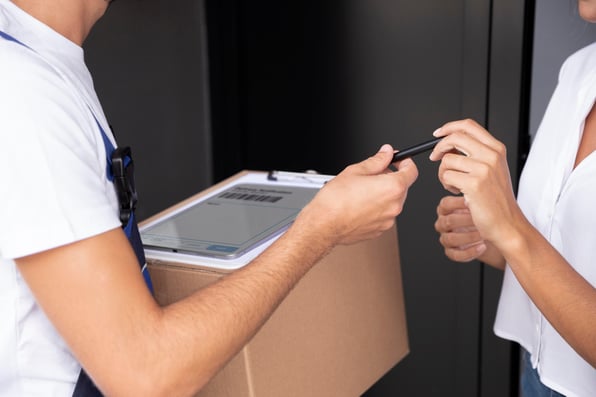
Top 10 Maintenance Rules for the Leisure Industry: Ensuring Guest Satisfaction
Ciprian Chiripuci

Maintaining high standards of guest satisfaction is essential for the success of any business. One crucial aspect that often goes unnoticed is maintenance. Proper maintenance not only ensures smooth functioning of facilities and equipment but also contributes to a positive guest experience. Wwill explore top 10 maintenance rules for the leisure industry, along with examples, benefits and best practices, to help businesses thrive in this competitive sector.
Develop a Comprehensive Maintenance Schedule
Establishing a well-structured maintenance schedule is crucial for preventing downtime and equipment failure. This schedule should encompass routine inspections, cleaning, repairs and replacements. For instance, a water park may implement a weekly maintenance schedule to inspect water filtration systems, test water quality and ensure proper functioning of water slides. The benefits of a comprehensive maintenance schedule include increased equipment longevity, reduced repair costs and improved safety for guests.
Regularly Inspect and Maintain Safety Equipment
Safety should be a top priority in the leisure industry. Regular inspections and maintenance of safety equipment such as fire extinguishers, emergency exits and security systems are imperative. For example, a hotel should conduct monthly checks on fire alarms, emergency lighting and evacuation routes. By adhering to this rule, businesses can mitigate potential risks, comply with regulations and ensure the well-being of guests and staff.
Implement Preventive Maintenance Practices
Preventive maintenance involves proactive measures to identify and address potential issues before they escalate. This includes routine inspections, lubrication, calibration and adjustments. An amusement park could adopt preventive maintenance practices by conducting daily inspections of ride components, applying lubricants to reduce friction and calibrating sensors. The key benefits of preventive maintenance are increased reliability, minimized downtime and improved guest satisfaction.
Train Staff on Maintenance Procedures
Well-trained staff play a crucial role in maintaining the leisure facility's equipment and infrastructure. Regular training sessions should be conducted to educate employees on maintenance procedures, safety protocols and the importance of timely interventions. For example, a golf resort may train its groundskeeping staff to identify turf diseases, apply appropriate fertilizers and maintain irrigation systems. By empowering staff with maintenance knowledge, businesses can enhance efficiency, reduce outsourcing costs and ensure consistent quality.
Keep Records of Maintenance Activities
Maintaining comprehensive records of all maintenance activities is essential for accountability and future reference. A digital database or software system can be used to track inspections, repairs, replacements and maintenance costs. This enables businesses to analyze trends, identify recurring issues and make data-driven decisions. For instance, a spa can track the usage and lifespan of massage tables to schedule timely replacements and optimize guest comfort.
Prioritize Regular Cleaning and Sanitization
Maintaining a clean and hygienic environment is critical in the leisure industry, especially in sectors such as hotels, restaurants and spas. Implementing thorough cleaning and sanitization practices reduces the risk of infections, enhances guest experience and promotes positive word-of-mouth. For example, a fitness center may establish a daily cleaning routine for exercise equipment, locker rooms and common areas. By upholding high cleanliness standards, businesses can attract and retain loyal customers.
Monitor Energy Consumption and Optimize Efficiency
Energy consumption accounts for a significant portion of operating costs in the leisure industry. Regular monitoring and optimization of energy usage can lead to substantial savings and environmental benefits. Installing energy-efficient equipment, implementing timers and sensors and training staff to be mindful of energy consumption are some effective practices. A hotel might install smart thermostats to regulate room temperature based on occupancy, resulting in reduced energy waste and cost savings.
Conduct Regular Landscape and Grounds Maintenance
Leisure facilities often feature outdoor spaces that require regular landscape and grounds maintenance. Proper care of gardens, lawns, pathways and exterior structures enhances overall guest experience and portrays a positive image. For example, a resort might hire professional landscapers to trim hedges, maintain flower beds and repair outdoor furniture. Well-maintained outdoor spaces contribute to guest satisfaction, attract new visitors and provide opportunities for memorable experiences.
Collaborate with Reliable Service Providers
While maintaining an in-house maintenance team is ideal, certain specialized tasks may require assistance of external service providers. It is essential to establish partnerships with reliable and experienced vendors who can provide timely and efficient services. This could include HVAC maintenance, pool servicing or equipment repairs. By collaborating with trusted partners, businesses can ensure the longevity of assets, minimize downtime and maintain a seamless guest experience.
Seek Guest Feedback and Act on Maintenance Concerns
Guest feedback is a valuable resource for identifying maintenance issues and improving overall operations. Encourage guests to provide feedback through surveys, suggestion boxes or online reviews. Actively address maintenance concerns and take prompt action to resolve issues. By demonstrating responsiveness and a commitment to guest satisfaction, businesses can build trust, foster loyalty and generate positive recommendations.
Leisure industry thrives on exceptional guest experiences and maintenance plays a pivotal role in achieving this goal. By adhering to the top 10 maintenance rules outlined in this article, businesses can ensure optimal performance, longevity of assets and high levels of guest satisfaction. From implementing comprehensive maintenance schedules to seeking guest feedback, each rule contributes to the overall success of leisure establishments. Embrace these rules and watch your business flourish in this dynamic and competitive industry.
Related posts
Here are some resources to help you get more out of your assets


Ciprian Chiripuci
Truck Sealing in Delivery Logistics: Definition, Benefits and Best Practices

Ciprian Chiripuci
Mastering that Last Mile
READY TO TALK?